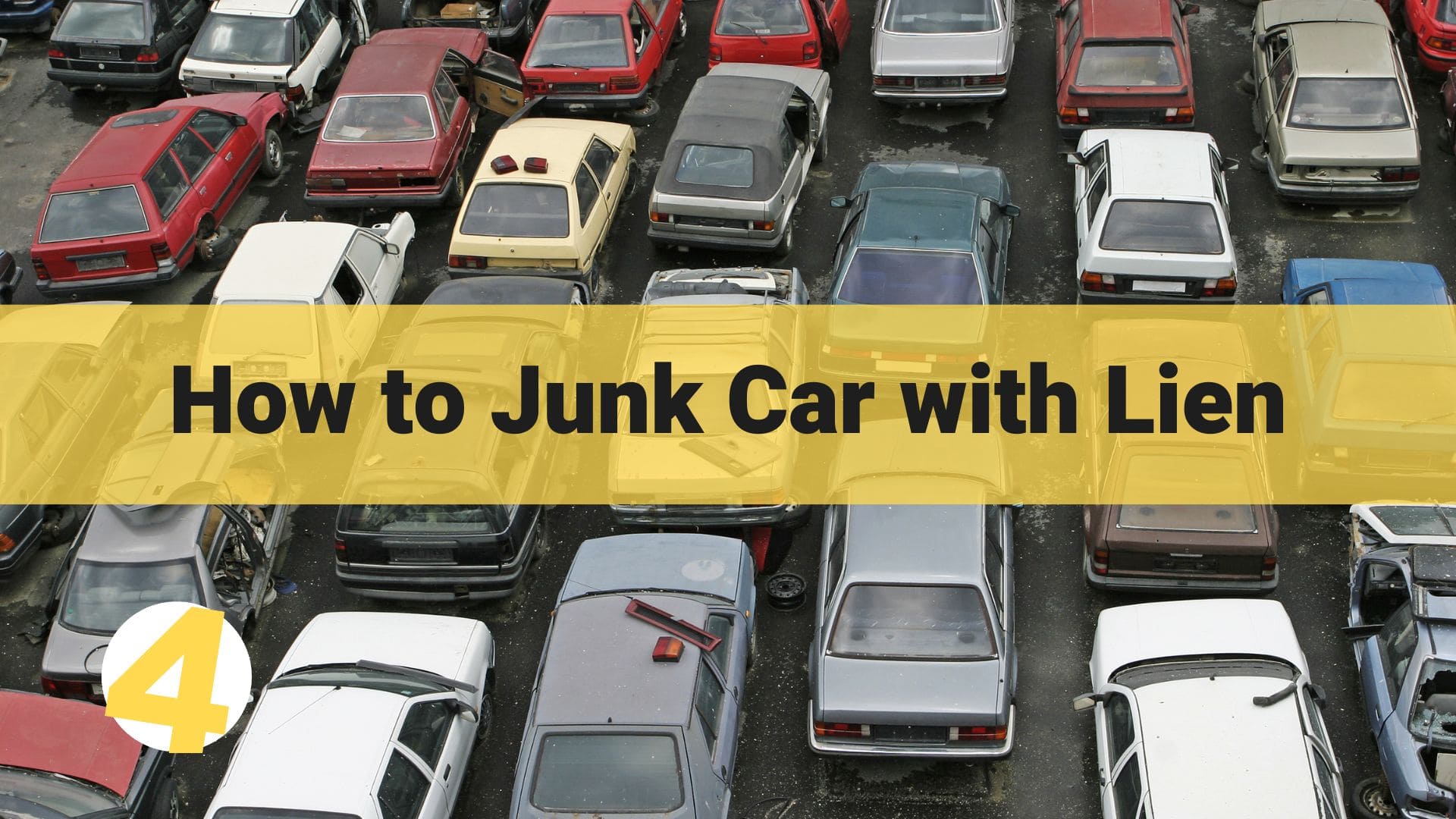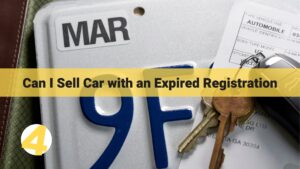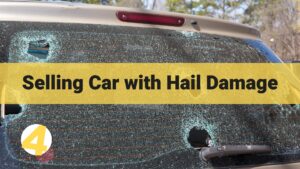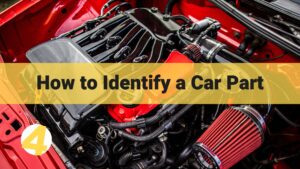Junking a car with a lien involves complex legal steps. It requires contacting the lienholder for approval, negotiating or settling the lien, and ensuring all necessary documentation is in order. The process demands transparency with the lienholder and adherence to legal protocols.
Continue reading to learn more about the steps and processes on how to junk a car with lien.
Steps to Legally Junk a Car with a Lien
Junking cars with liens involves a few extra steps compared to regular car junking. Here’s a look at what you need to do to go about it:
Step #1: Speak with the Lienholder
The first and most crucial step in legally junking a car with a lien is to initiate a conversation with the lienholder. The lienholder’s policies and flexibility can significantly vary, so it’s important to understand their specific requirements and processes.
You should inquire about the remaining amount to be paid off and whether the lienholder accepts transferring ownership to a new buyer. This discussion will clarify whether you can proceed with junking the car and under what conditions.
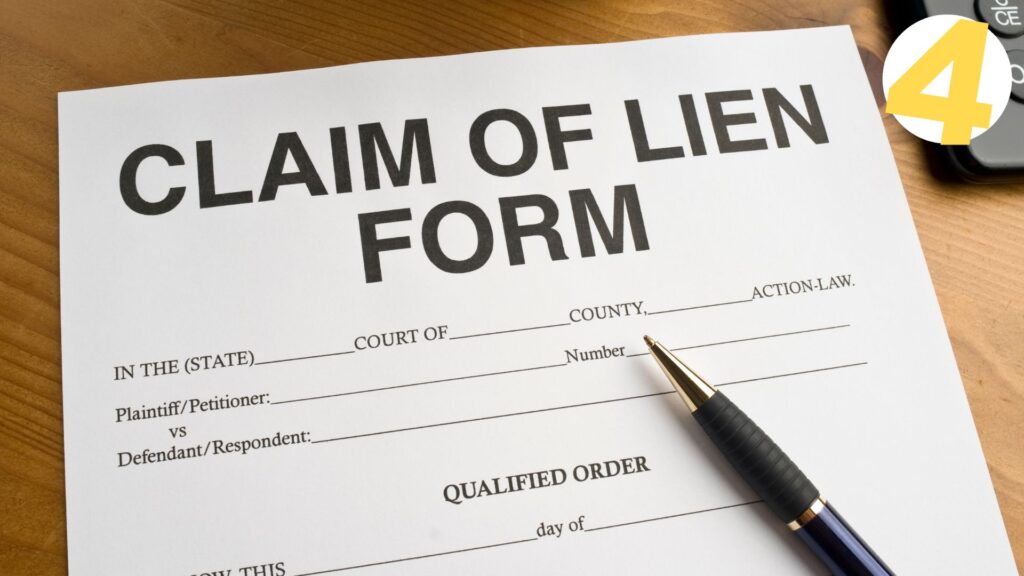
Step #2: Settling or Negotiating the Lien Before Junking
Once you’ve established contact with the lienholder, the next step is to consider how to settle the lien. You may choose to pay off the remaining loan amount before proceeding, which is often recommended as it simplifies the process and broadens your options for junking the car.
If paying off the loan in full isn’t feasible, you might need to negotiate with the lienholder for a settlement, particularly if the car is non-functional or has significantly depreciated in value. This step is crucial to avoid legal complications and to make the car more attractive to potential buyers.
Step #3: Documentation and Paperwork Required
Proper documentation is essential in the process of junking a car with a lien. You will need to complete specific paperwork, which may include a Damage Disclosure Statement if it’s not already a part of the car’s title.
The key documents typically required are the vehicle title and proof of registration. These documents prove your ownership and the car’s history, essential for any legal transfer of ownership. Additionally, you may need to provide proof of permission from the lienholder, confirming that the lien has been satisfied or that they agree to the sale under specific terms.
It’s also important to relinquish the license plates of the vehicle as per state requirements. The specific paperwork may vary based on your location and the vehicle’s condition, so it’s advisable to check with your local DMV to ensure you have all necessary documents.
Alternative Options to Junking a Car with a Lien
Here are your other options if you can’t accomplish the necessary steps to legally junk a car with a lien:
Option #1: Selling the Car to Cover the Lien
One viable alternative to junking a car with a lien is to sell it privately. This approach is feasible if the sale price is higher than the lien amount, allowing you to use the proceeds to pay off the loan.
However, it’s important to note that selling a car with a lien can be challenging, as it involves coordinating with the buyer, the lender, and potentially the DMV. Additionally, it’s illegal to sell a car to a private buyer without disclosing the lien, and in some states, it’s entirely prohibited even with disclosure. Always check local laws to ensure compliance.
Option #2: Refinancing or Transferring the Lien
Refinancing the car with a lien is another option. This involves replacing your current auto loan with a new one, often with different terms and possibly a lower interest rate. The process of refinancing requires transferring the vehicle title to the new lender and is subject to various state-specific procedures.
Refinancing is relatively straightforward if the lien is from an auto loan, but it can be more challenging with other types of liens, like judgment or tax liens. The new lender will request a lien release and an updated title from the old lien holder once the balance has been paid.
Additionally, selling or trading in your car is possible even with a lien. For a private sale, you can arrange for the buyer to pay off your lender directly and update the title. Dealerships can also handle title transfers for trade-ins. This process varies by state, so checking local DMV requirements is essential.
Option #2: Seeking Professional Advice or Services
If you’re uncertain about the process or face difficulties, seeking legal assistance is a wise step. Consulting with a lawyer who has experience in lien-related matters can be invaluable. They can provide guidance, assist in negotiations with the lienholder, and ensure that all legal obligations are met while protecting your rights and interests.
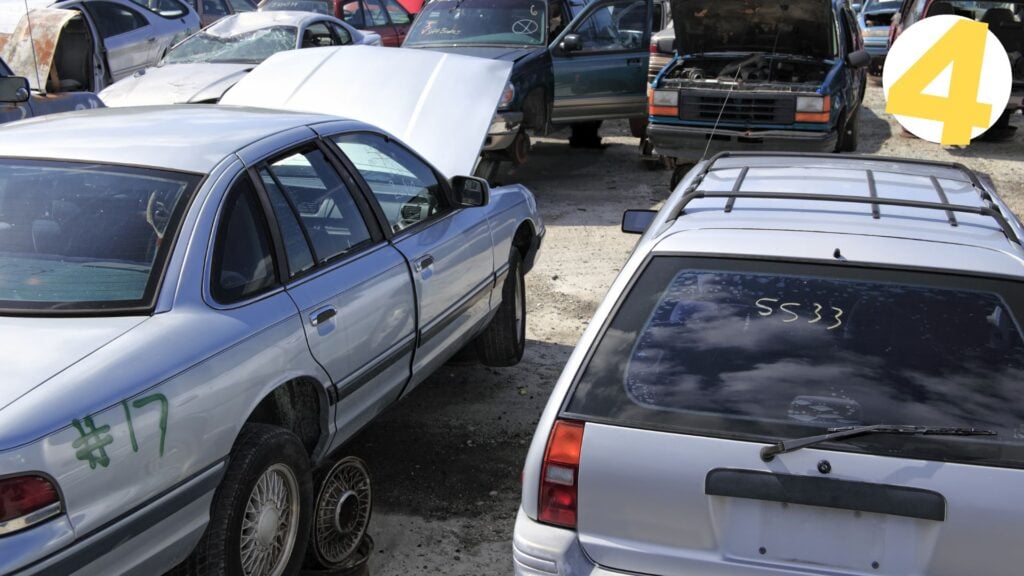
Tips for a Smooth Car Junking Process with a Lien
Here are some pointers you must bear in mind to ensure that you won’t have any problems in junking a car with a lien:
Conducting Thorough Research and Planning
The first step towards a successful car junking process is thorough research and planning. This involves understanding the legal implications of junking a car with a lien and the necessary steps required.
Start by contacting the lienholder for information on how to proceed and what is required. Additionally, you should research local junkyards and scrap yards, their requirements, and their pricing strategies. This preparatory work ensures you are well-informed and ready to proceed with the process effectively.
Understanding the Value of Your Vehicle
Knowing the value of your vehicle is crucial before junking it, even with a lien. The value can be influenced by several factors. These include the car’s make, model, year, condition, the price of scrap metal, and the current demand for specific car parts or models.
Tools like Kelley Blue Book and Edmunds can provide a general value estimate, but consider specific factors like car condition, market demand, and scrap metal prices for a more accurate value.
Choosing a Reputable Junking Service
Selecting a reputable junking service is vital to ensure a fair deal and legal compliance, especially when dealing with a lien. Research the reputation of potential services, looking for reliability, professionalism, and fair pricing.
Compare offers from different services, and remember that the highest price might not always equate to the best service. It’s also important to consider the service’s location, as local services are more likely to understand regional regulations and offer more convenience.
Ask about pickup times and ensure they align with your schedule. Inquire if they offer environmentally friendly practices like recycling and proper disposal methods. Lastly, understand their payment options and any associated fees or charges to avoid surprises.
If you’re in Philly and surrounding areas, we at Cash4Cars offer the above-mentioned services. We’re a reputable business that deals with buying junk cars for cash. We’re licensed and insured and offer fair prices for junk cars. Plus, we offer free pickup and payment by cash on the spot.
What Happens if You Junk a Car with a Lien on It?
Junking a car with a lien without addressing the lien can lead to significant legal and financial repercussions. Since the lienholder has a legal claim on the vehicle, selling it without their permission or without settling the lien can result in legal action against you.
This could include lawsuits for outstanding debt or even criminal charges if the act is deemed fraudulent. Moreover, the financial implications could be extensive, which include penalties or fees associated with the breach of contract with the lienholder.
Impact on Credit Score and Financial History
Ignoring the lien when junking a car can severely impact your credit score and financial history. If you sell a car with a lien and fail to pay off the debt, the lienholder may report the unpaid debt to credit bureaus, which can lead to a significant drop in your credit score.
This, in turn, affects your future financial credibility, which will make it harder to obtain loans or credit in the future. Such negative marks on your credit history can take years to resolve and may hinder your financial opportunities.
Role and Responsibilities of Lienholders
Lienholders hold the legal right to the vehicle until the lien is fully paid off. As a car owner, it’s your responsibility to negotiate with the lienholder, who may be a financial institution or an individual.
This often involves paying off the debt or reaching an agreement that satisfies the lien. If the lienholder agrees, they may allow the transfer of ownership to a new buyer or a junk car company. However, it’s vital to ensure all paperwork is signed and processed correctly to confirm that you’re no longer liable for the lien.
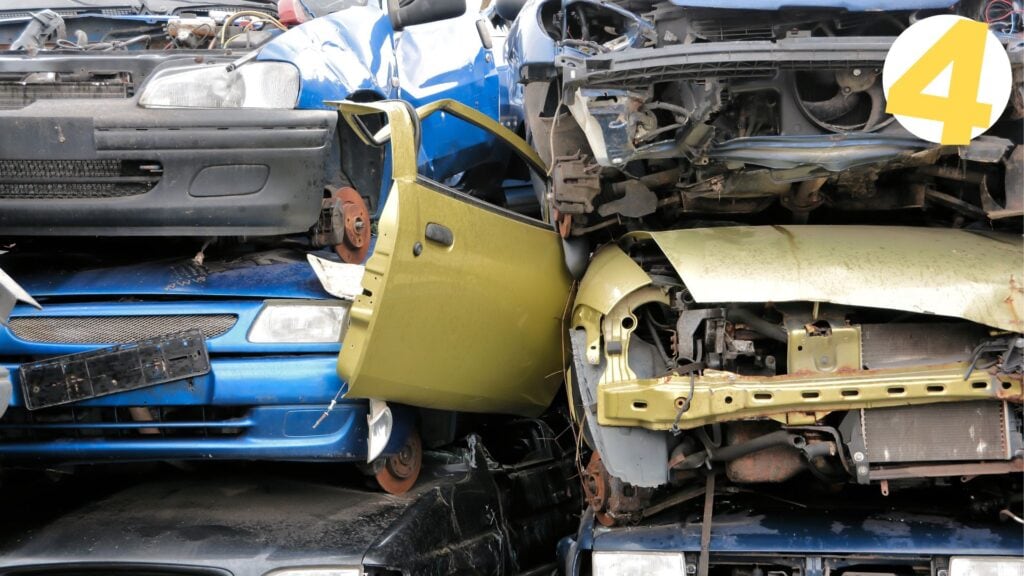
Get Top Value for Your Junk Car with Cash4Cars
It’s crucial to approach the junking process legally and responsibly. This means respecting the lienholder’s rights, adhering to state and federal regulations, and ensuring all debts are cleared before proceeding.
Car owners should conduct thorough research and planning, understand their vehicle’s value, and select a reputable junking service. This is where we come in at Cash4Cars. We understand how challenging it can be to sell a junk car with a lien, so we will guide you throughout the process. We will assist you on what you need to do until such a time that you have acquired the legal rights to junk the vehicle.
Call us now to learn more about our services and to get a free quote for your other old or damaged vehicles you want to sell. Choose Cash4Cars for a hassle-free way to transform your junk car into cash.

